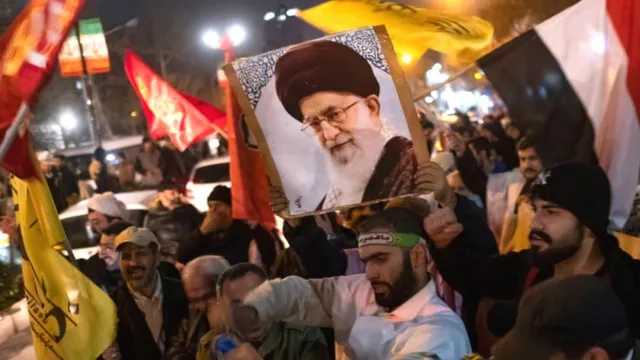In the span of two days, Iran has launched strikes against targets in Syria, Iraq, and Pakistan, three allies. Pakistan attacked Iranian land with missiles in retaliation. Why, therefore, did Iran commit this crime, and why is it happening now? Everything points to Islamic hardliners within Iran exerting pressure on the Revolutionary Guards to take action.
These hardliners are becoming more and more irate that Iran seems to be watching helplessly as Israel massacres a great number of Palestinians in Gaza.
They are also upset that Iran did nothing in response to the murders of several prominent Revolutionary Guard officers in Syria by its bitter adversary Israel, and that it only offered verbal support to the Houthis when they were targeted by US and UK strikes. And then there was the bombing two weeks ago in the Iranian city of Kerman that was claimed by the Islamic State group (IS), which resulted in the deaths of at least 84 people. The Guards believed they had to take action without inflaming relations with the US or Israel. Iran has been cautious to stay out of the Israel-Gaza conflict, even though it does provide military assistance to Hezbollah, the Houthis, and Hamas.
But they seem to have scored a few own goals in their attacks on Pakistan, Syria, and Iraq.
Iran claims that the militant group Jaish al-Adli, which it refers to as a “Iranian terrorist group,” was the target of the missile and drone attack inside Pakistan. Pakistan, however, claims that it killed two kids. Being a nuclear state, Pakistan felt compelled to respond to the strike, which was obviously an infringement on its territorial integrity and sovereignty. It also made Pakistan’s nuclear deterrent less effective.
It then launched its own attacks against the Balochistan Liberation Army and the Balochistan Liberation Front, claiming they were the hideouts of Pakistani “terrorists” stationed in Iran. Iran claims that four children, two men, and three women were killed. The usually cordial ties between the neighbors have been severely harmed by the tit-for-tat attacks. The Revolutionary Guard was not prepared for Pakistan’s response. The 900 km (560 mi) border between Iran and Pakistan is challenging for each country to control alone. Pakistan has shown to be a vital friend in global fora, frequently casting its votes in favor of Tehran.
It seems that the massacres in Kerman prompted the strike on Syria. However, despite Iran’s claims, there are no reports of a significant blow to IS or extremist Sunni organizations even there. The government of Iraq, which is perhaps Iran’s closest friend and neighbor, is furious about strikes in which Iran fired about 11 ballistic missiles toward a target in Irbil, in the Kurdistan area of Iraq. Iran asserted that it had struck an Israeli intelligence agency’s operations center, Mossad. However, according to Kurdish and Iraqi authorities, a well-known businessman and his wife were killed, along with their two infant children, when their home was struck by gunfire. The UN Security Council, which is scheduled to take up the strikes, has received a complaint from the Iraqi government. Notwithstanding the many problems that exist between the two countries, the incident has damaged the goodwill that has been built over many years.
It’s possible that the Revolutionary Guards decided to attack the three nations only after conferring with Iran’s supreme commander. There are indications that the foreign minister was not contacted prior to the commencement of the attacks. The attacks this week seem to have further damaged Iran’s standing internationally, endangering its defenses and casting the Revolutionary Guard in a negative light as a group prone to rash decisions and unwarranted risk-taking.

